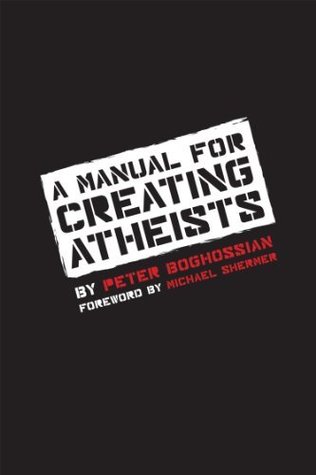More on this book
Community
Kindle Notes & Highlights
“Atheist,” as I use the term, means, “There’s insufficient evidence to warrant belief in a divine, supernatural creator of the universe. However, if I were shown sufficient evidence to warrant belief in such an entity, then I would believe.”
Faith cannot steer one away from falsehood and toward truth. This is because faith does not have a built-in corrective mechanism. That is, faith claims have no way to be corrected, altered, revised, or modified.
perhaps because I don’t view atheism as an immutable characteristic, like eye color, I don’t consider it an identity. I’m willing to change my mind if I’m presented with compelling evidence for the existence of a God or gods. I can understand why many theists consider belief a part of their identity, as they often claim that they’re unwilling to change their minds. One may be more likely to consider something a part of one’s identity if it’s not subject to change.
Faith taints or at worst removes our curiosity about the world, what we should value, and what type of life we should lead. Faith replaces wonder with epistemological arrogance disguised as false humility. Faith immutably alters the starting conditions for inquiry by uprooting a hunger to know and sowing a warrantless confidence.
Disabusing others of warrantless certainty, and reinstilling their sense of wonder and their desire to know, is a profound contribution to a life worth living.
The more intelligent and articulate the apologist, the more conspicuous and epistemologically enfeebling the confirmation bias.


